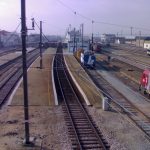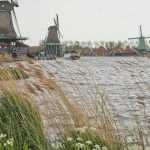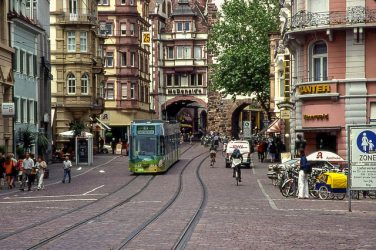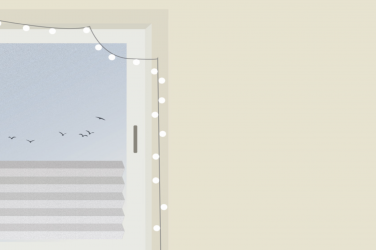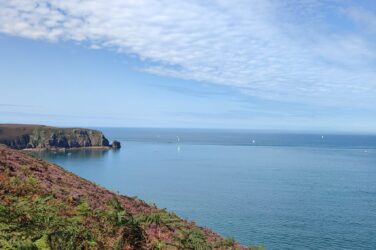Travelling by road to the most remote places in the world to set up a free open-air cinema for local people who – in some cases – have never seen moving images before. This is what Cinema du Desert does. E&M‘s Jessica Verheij interviewed Davide, Francesca and João – co-founders and current members of the project – to talk about how cinema can play a role in building bridges between cultures.
E&M: I read on your website that the Cinema has traveled the world since 2009, so for more than 10 years already. Can you tell me a little bit about how you got started?
Davide: In 2009 Francesca and I were traveling in Africa. We were trying to reach Timbouctou by land, but discovered that our vehicle was not suited for it as it got stuck in the sand. Around 40 people from a nearby village came to help us to get the truck out of the sand! We were very grateful, but as travelers we did not feel comfortable giving money or other material presents. So, we had the idea of doing a screening for them – we had a beamer with us which we used to watch movies ourselves. We decided to show them “The Jungle Book” and “Alice in Wonderland” – in the middle of desert. More and more people came to the central square as we were screening the first movie, and one movie became two, three – it went on the whole night.
We were so impressed by the reaction of the people, that we thought it could be really interesting to screen movies more often. Since this experience, in every village we passed we set up our equipment and screened a movie. We realized it was a very good opportunity for us as travelers to meet with the local people. We learned that many people had never seen moving images before, and so we started to screen regularly.
E&M: You also mention that you use “the power of images” to build bridges between cultures. Could you elaborate a bit on this?
João: We promote public and free film screenings to meet people from different cultures in a completely unusual way. We travel by land, which makes everything sequential and extremely slow, so we become truly immersed in the human landscape. We show different genres, from entertainment to documentaries, but it is above all about the pleasure of sharing a moment together. Sometimes we screen films which are a bit rough, as they address complex topics, but the original spark for the project was to show “easy-going” movies – non-verbal movies that everybody can connect to and enjoy watching regardless from any political agenda.
We promote public and free film screenings to meet people from different cultures in a completely unusual way.
In the western world, movies have become completely normalized. I take cinema for granted – I watched my first movie when I was 3 years old. But for many populations, the moving image can be a supernatural experience – a privilege. And since such an amazement still exists, we invite people to get to know how the world looks like outside their surroundings. We seek to show the unseen and to go beyond the typical and mutual stereotypes. Cinema gave us this chance to start a conversation.
E&M: How do you select the movies you display? Do they have a specific theme or purpose? Do you adapt your choice to the type of community you visit?
Francesca: It really depends on the situation and the people we have around us. Normally we have a selection of movies from which we select the screenings. In sub-Saharan Africa we usually encounter a lot of children, so we start the evening with cartoons. Afterwards we have a program for adults, usually a selection of documentaries. We have a “menu” of movies, and every year we add new movies to it.
In Burkina Faso and Ivory Coast, we work together with an organization to show documentaries about migration – a very serious topic, so we like to be prepared and make the selection already months in advance. In Italy we work together with an association that helps us with the selection of movies. We often show cartoons that people enjoy, but that can also start a reflection about a specific topic.

João: One of the challenges is when we do not stay in a place long enough to be aware of the effect of our events. This means we have to think well about the movies we screen, not to be too disturbing. For example, in refugee camps in Greece we just stuck with Charlie Chaplin’s films, as we are dealing with traumatized populations. Here we realized the importance of our presence and the power of culture as a form of psychological relief, as people kept asking for more movies.
E&M: I can imagine that setting up an open-air cinema in some of the most remote parts of the world must be a fascinating experience. Can you tell us which experience caused the biggest impression on you?
João: Setting up a cinema inside a Mongolian yurt was very special. Mongolia is the least densely populated place in the world, and to show films in the middle of the desert, under the stars – it was such an “out of place” experience, a complete disruption of the normal.
Francesca: There are so many nice memories. It was interesting for me to realize that for some people it was difficult to understand the moving images – sometimes people were scared that a truck would come out of the screen and ran away during the screening. In the same way, to distinguish fiction from a documentary is not always easy for our audience.
To distinguish fiction from a documentary is not always easy for our audience.
Davide: Once we were screening the movie Home, by Yann Arthus-Bertrand. This movie has always been an inspiration to us, as the first time we saw it we were so touched… In that moment we realized we need to show this movie everywhere we can. I think we have screened it in more than 15 countries.
After this screening in Burkina Faso, we were packing our stuff. As everyone went home, three women from the audience stayed. We had a translator with us as many people do not speak French, so we asked him to ask the women if they needed something. After speaking with the women for a long time, the translator came back and said they wanted to greet us. The women were part of an agricultural cooperative, and recently a foreign NGO had proposed to give them tractors to cultivate their land. After seeing the movie, they decided they would not accept the tractors, as a tractor would be totally useless to them. Instead, they talked about how they would ask the NGO to propose something else.
I think this is the best feedback we could get. We did not tell them what to do, but after watching the movie they felt empowered to make their own decision. And they wanted to share this with us.
E&M: But it is not only about movies, is it? I understand you also engage in a number of other projects to help the communities you visit?
Davide: We work together with the Italian NGO Bambini nel Deserto. Our collaboration started as, during our travels with the Cinema du Desert, we started to bring material from Italy to their projects around Africa. We chose this NGO because it reflects very well what we are and what we try to do; it is an NGO made by travelers that sees Africa not as some entertainment park but as a complex system. We became associated, and after two years we started our own branch of this NGO. We had already seen many of their projects, and wanted to continue this work. The Cinema du Desert is one of the projects we have, but we do many other things: projects related to solar energy, agricultural cooperatives, planting trees, building schools…

However, we are not so many people, and to be able to take our projects serious we started to focus mostly on cinema since 2015. In the last years we did not have enough resources to also focus on other activities, as the Cinema du Desert became our core project. This is mainly because we have partnered with the Italian Ministry of Foreign Affairs and the International Organization for Migration, and we organize many screenings as part of this program.
E&M: Building on your experiences with Cinema du Desert, how do you see the role of culture and education within the European Union today? Do you think there is a need of building bridges between European countries, or between European countries and the rest of the world?
Davide: More than ever! Actually, open-air cinema is one of the safest activities to do together at the moment. Our project can be very interesting for Europe. But doing open-air cinema in Europe is very different than our projects in Africa or Asia: in Europe, you need to deal with a lot of regulations and permits, and money to pay for the public screenings. We have rights to screen movies in African countries for free, but no one gives us a movie to screen for free in Europe.
We have a program of open-air screenings in the north of Italy which will be extended to the rest of the country soon. And now, given the current pandemic, we need to rethink our activities and focus more on the European continent. But for this we need money and partners, otherwise it is not possible.
We have rights to screen movies in African countries for free, but no one gives us a movie to screen for free in Europe.
João: It’s not easy to change someone’s mind. So, I trust that Cinema du Desert could have a more immediate influence breaking down some prejudices in Europe than in Africa. Since it’s closer to our culture, we would be comfortable to show movies that are more provocative and intense – for example movies about sexual awareness. I cannot show this in, for example, Burkina Faso, as it is a culture I do not know so well, and we must always be aware of our impact.
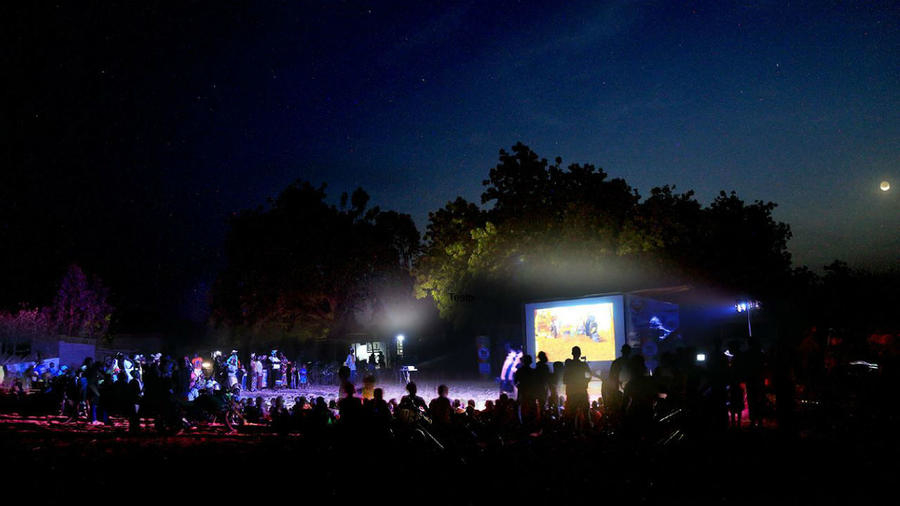
E&M: Last question: can young Europeans get involved in your project?
João: What I would say on how to participate in Cinema du Desert is: make one! You do not need us to tell you what to do – if you are interested, just do it! You need a projector, a piece of white cloth, a computer, genuine curiosity to spend some time with strangers, and any vehicle – but this can even be a bicycle. Sometimes people see it as something phenomenal; it is, but it is not limited to us. Anyone can do it.
We thank Davide, Francesca and João for their time. Answers may have been edited for brevity or clarity.
Francesca Truzzi and Davide Bortot (Italy) are co-founders of the Cinema du Desert-project, a solar-powered nomad open-air cinema initiative, and the related NGO branch “Bambini Nel Deserto Trentino”. João Meirinhos (Portugal) joined the Cinema du Desert in 2010. With their projects they have traveled the world, from sub-Saharan Africa to Central Asia and from refugee camps in Greece to the north of Italy. They share a passion for cinema, culture, and social work. For more information, visit their website!
Cover photo: courtesy of Cinema du Desert.




